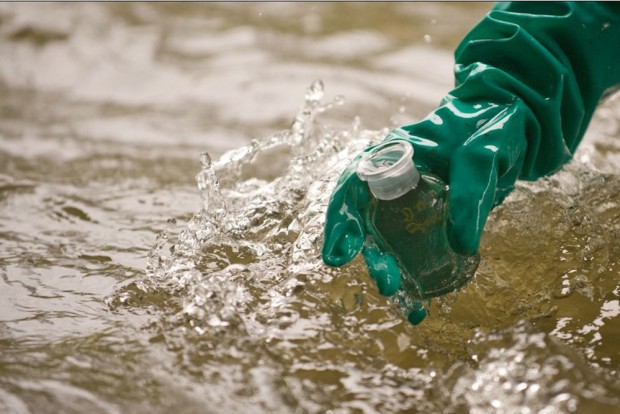Poor water quality can lead to numerous ranging from foul odors to more serious problems which may affect plumbing systems or cause harm to fixtures and appliances. Understanding the most common concerns pertaining to water quality helps to ensure that any underlying problem may be identified and addressed with greater ease. The following examples serve to highlight a few of the biggest factors that may affect water quality.
Organic Contaminants
Bacteria and other microorganisms found within water can decrease its overall qualities in a variety of ways. Foul odors and water that may smell musty are typically signs of organic contaminants. Even simple water filters and treatment methods are typically sufficient to deal with organic contaminants although there are some microorganism which may be more difficult to deal with and others which may even pose a health and safety risk if left unaddressed.
Ph Balance
The pH balance of water is a measure of its acidity or alkalinity. Water that has been distilled should have a neutral pH level, although the pH level of tap water may vary due to a variety of different factors. Minor minor fluctuations in pH levels may be all but impossible to detect short of testing the water, more pronounced differences may begin to create problems. Issues with pH levels may negatively impact the quality of drinking water or interfere with cooking and meal prep.
Sedimentary Deposits
Naturally occurring mineral deposits are one of the most common contaminants found within tap water. Sediments within a plumbing system may begin to accumulate which may cause problems with water pressure or occlude water flow from aerators and faucets. High levels of sediment within tap water typically leave a film on surfaces once they have dried and may require the installation of filters or other treatment methods in order to deal with the situation. Deposits that have built up over time may cause considerable damage to pipes, plumbing and fixtures.
Pesticides and Other Chemicals
The presence of chemical contaminants within a water supply is not something that should be taken lightly. While trace elements of certain chemicals are not uncommon, certain substances may cause issues and problems even there is only a minute quantity present. Sophisticated water testing and analysis methods may be the only viable way to detect chemical within the water supply, especially levels of contaminants that may be too low to be detectable through other means. While filtration and treatment efforts may be effective for removing certain chemicals, identifying the source of the contaminants and addressing any issues that might place a plumbing system or water supply at risk of contamination is never a concern that should be left to chance.
Water Filtration and Treatment
There are numerous products and appliances available on the market which may allow home and property owners to address or prevent issues that may negatively impact the quality of their water. From basic filtration to devices that utilize reverse osmosis and UV-light sterilization techniques in order to eliminate contaminants, investing in the right resources will help to ensure that water quality issues are less likely to become an issue. Ensuring higher water quality may improve the taste of drinking water, eliminate unpleasant odors within the home as well as helping to prolong the useful operational life of plumbing systems, fixtures and major appliances.
Charlie Teschner started MESA Plumbing, Heating, and Cooling in 1982. Charlie has a journeyman and master plumber’s license. He was raised with a strong work ethic and he now applies those values to tasks such as Longmont, CO heating repair.
